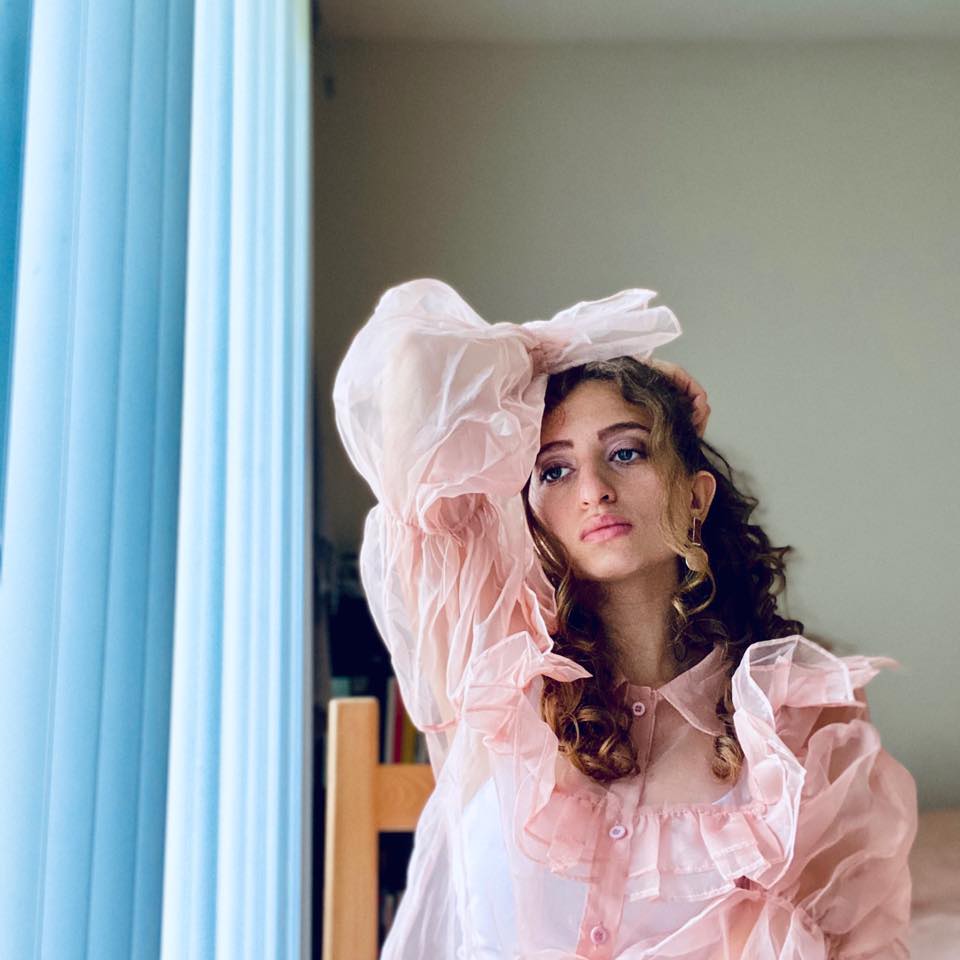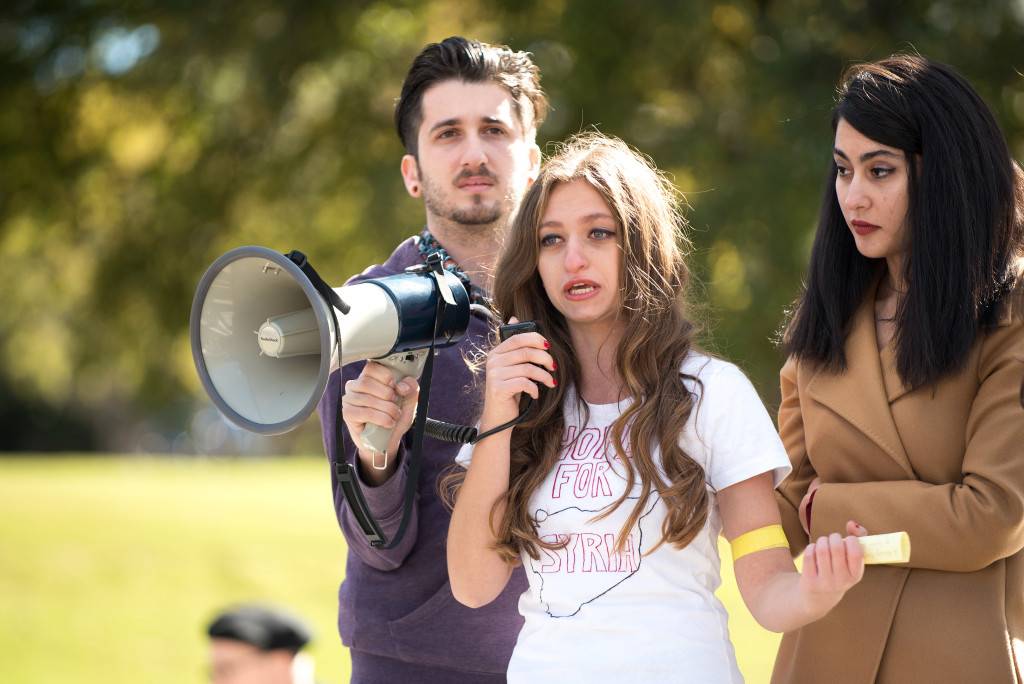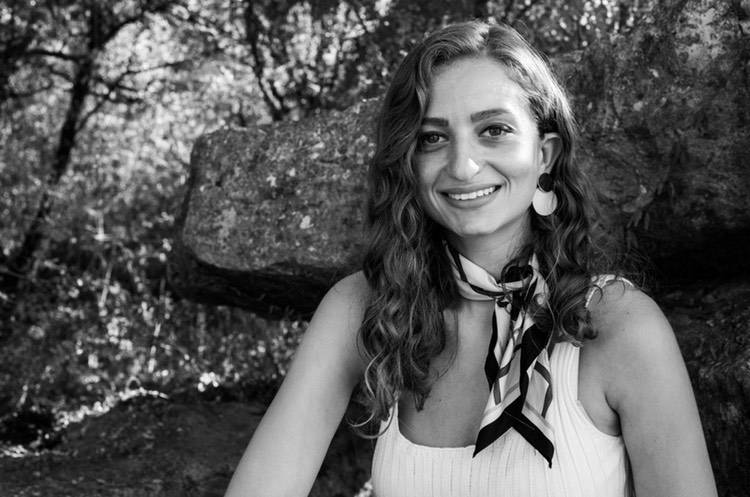Nour Al Ghraowi
Even Siri could not see her coming: Nour Al Ghraowi
by Nkiacha Atemnkeng

Nkiacha Atemnkeng ('21) talks with Nour Al Ghraowi, a Middle Eastern Writer from Damascus, Syria and a current MFA student in poetry at Texas State University.
Nour Al Ghraowi happens to be a bird – or so she wishes.
She has always wanted to flap her wings across oceans and discover what lies beyond mountains; it is no surprise that she writes in free verse.
Now a second-year Poetry student at Texas State University, she believes she has perched on the right twig of her journey of life – and Nour has come a long way.
She is determined to tell me her story. Not even an attack of the flu will stop her from sitting and talking with me in my apartment complex in San Marcos. She says she relishes the taste of the tiny dices of coconut sweet from a saucer that I have set before her.
Nour was born and raised in Damascus. She traveled to the U.S. in 2013 when the war in Syria worsened, to study for a Bachelor's Degree in English Literature at The University of Texas, Austin. She started learning English when she was ten and started writing poetry when she was seventeen.
Her literary work is accessible, succinct, evocative of the violence that has plagued Syria over the years, instilled with the love of family, and yearns for home, no matter how broken home is. She writes in Arabic and then translates her poems to English, and sometimes inflects tiny snippets of French and Arabic in her English work.

“I write in the hope of changing the western view of the Middle East and being Middle Eastern,” she explains. “Also, to change perceptions of the Arab language which is often viewed as inimical.”
“I write in the hope of changing the western view of the Middle East and being Middle Eastern,” she explains. “Also, to change perceptions of the Arab language which is often viewed as inimical.” Nour also writes on other topics like social justice and migrant identity.
What is equally interesting about this poet is her unique creative process.
“I generally get inspired when I’m driving, but I forget a lot, so when an idea for a poem hits me, I use Siri to save it because I can’t type while I’m on the steering!" She illustrates an example of how she does that and I laugh. Even the inventor of Siri had probably not seen that coming.
Ludacris once said he wrote some of his most famous hits on all kinds of old receipts in his car. However, this kind of storage of inspiration on Siri is something else.
To Nour, a poem is never truly finished. When she writes, she leaves the work for a day or two before coming back to revise it. The result, even when published, is always a satisfying draft, but never a final draft.
There is no difference between poetry and activism for the Austin-based woman. She wears both tags evenly; there is a strong shade of activism in her poetry. Nour has read her poetry at protests in Austin where she has even been a lead activist.
Chief among which was the protest in front of the mansion of the governor of Texas, Greg Abbott. Nour, who is a Syrian refugee herself, and four other protesters led the march of five-hundred people who called on Abbott to reverse his decision to block the resettlement of Syrian refugees into the state of Texas.
It is this sense of social justice and equality that inspires Nour's poems on migrant hostility and perhaps informs her feminist views too, also palpable in her work.

I ask Nour about her thoughts on Rumi’s poetry.
“Everybody keeps asking me about Rumi!” she retorts.
Nour feels inspired by the works of Sylvia Plath and Naomi Shihab Nye. She would like to think that she is Naomi’s favorite student. It is maybe one of the reasons why she tells me that she loves the MFA program at Texas State.
“There were moments when I felt like I didn’t fit in at all.”
Now, when she recalls the day she had a name order issue when attempting to obtain her Texas State ID at the LBJ student center, she can find some solace in the incident.
Four of her classmates who had already received their IDs waited for her for over thirty minutes. So the ID staff could fix Nour’s problem. So they could all leave together. It was at that moment she knew she was in the midst of hospitable people. They then all became friends. She tells me she would miss those friends when she graduates.
My last question is on the subject of what she would be up to after graduation. She looks up at me, smiling, and declares,
“A Ph.D.”
Read Nour's work here, on Porter House Review. Follow Nour on Twitter here.